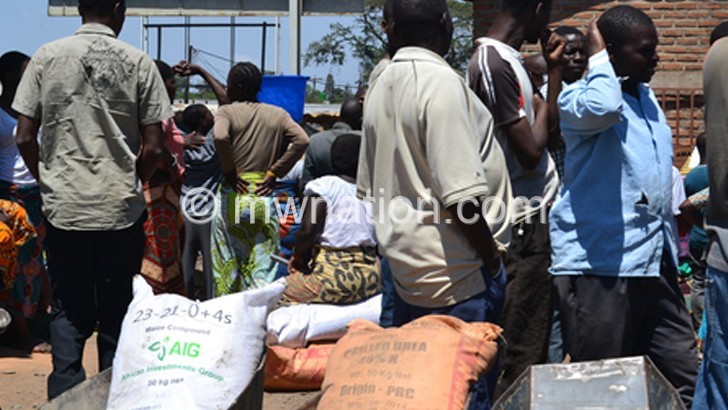Chiefs fault new Fisp system
- Say 2017/18 programme the worst
- Govt says chiefs bitter for not being involved
Some traditional leaders in the country have faulted government’s new system of selecting Fisp beneficiaries through district councils, saying it resulted in undeserving people benefitting from the programme.

Describing the 2017/18 Farm Input Subsidy Programme (Fisp) as the worst ever, the chiefs said most of those who benefitted were not the targeted poor.
Government embarked on a redesigning exercise of the programme which has seen it engaging councils in identifying beneficiaries instead of chiefs as was the case previously.
But in random interviews in all the country’s regions, the traditional leaders claimed they have been receiving complaints from villagers on why most of the poorest people were left out with some names of dead people appearing on the list of beneficiaries.
“The problem is that government associates chiefs with coupon theft, but we were helpful in identifying the poorest among the poor. But with this new system, some people who died long time ago are still appearing on the list of beneficiaries, resulting in many undeserving people benefitting,” said Traditional Authority (T/A) Amidu of Balaka.
T/A Nyachikadza of Nsanje echoed Amidu’s sentiments, saying the list of beneficiaries from his area was not updated as some of the names appearing on this year’s list no longer live in his area.
Another traditional leader in Nkhata Bay, who spoke on condition of anonymity, accused government of politicising the programme, saying fewer people in his area received coupons as compared to previous years.
Commenting on the issue, Farmers Union of Malawi (FUM) president Alfred Kapichira-Banda also blamed government, saying the chiefs were crucial in identifying beneficiaries because they live with the people.
“We have been talking about this government’s new arrangement of selecting Fisp beneficiaries. The problem is that the selection is done at Capital Hill. As far as I know, a computer cannot detect who is the poorest among the poor.
“The right people to know are traditional leaders, who are always with the people. Many beneficiaries of this year’s programme were rich people, according to our findings,” he claimed.
But the situation was not better when government was using chiefs in identifying the programme’s beneficiaries.
Reports of some chiefs deliberately omitting legitimate beneficiaries from the programme and instead including their relatives and friends were rife.
For example, in The Nation of 2 May 2017, some chiefs in T/A Kaphuka in Dedza were accused of demanding cash and other material gains from their subjects as a precondition for inclusion on the list of beneficiaries.
However, the FUM president stressed the need for government to recruit more agricultural assistants in extension planning areas (EPAs) to work with chiefs in identifying the less privileged in villages to benefit from the programme.
But in interview, Fisp national coordinator Osborne Tsoka laughed off the chiefs’ and Kapichira-Banda’s allegations.
He argued that this year’s Fisp has been the most successful and the chiefs were complaining because government did not involve them in the distribution of coupons.
Said Tsoka: “The programme was reformed. But if you look at how we select beneficiaries, we can say it is done in villages, because we get data from villages, where they choose the poor.
“The problem is that there are some people who want to benefit from the programme every year. With this new system, some who have never benefited from the programme have now started benefiting.”
Tsoka, who is also Ministry of Agriculture, Irrigation and Water Development spokesperson, further said beneficiaries for this year’s programme were buying farm inputs directly from suppliers in their villages even in hard-to-reach areas.
Fisp was introduced in 2005/06 farming season to help achieve household and national food security by subsidising the cost of production.
In the 2017/18 National Budget, government allocated K43.5 billion towards the programme which is expected to benefit about 900 000 smallholder farmers. During the last farming season, K40 billion was allocated to the programme.
On the inputs, government is subsidising NPK and Urea fertilisers 50 kilogrammes (kg) bag with K15 000. It is also subsidising 5kg maize seed with K6 000 and legumes with K2 050.





